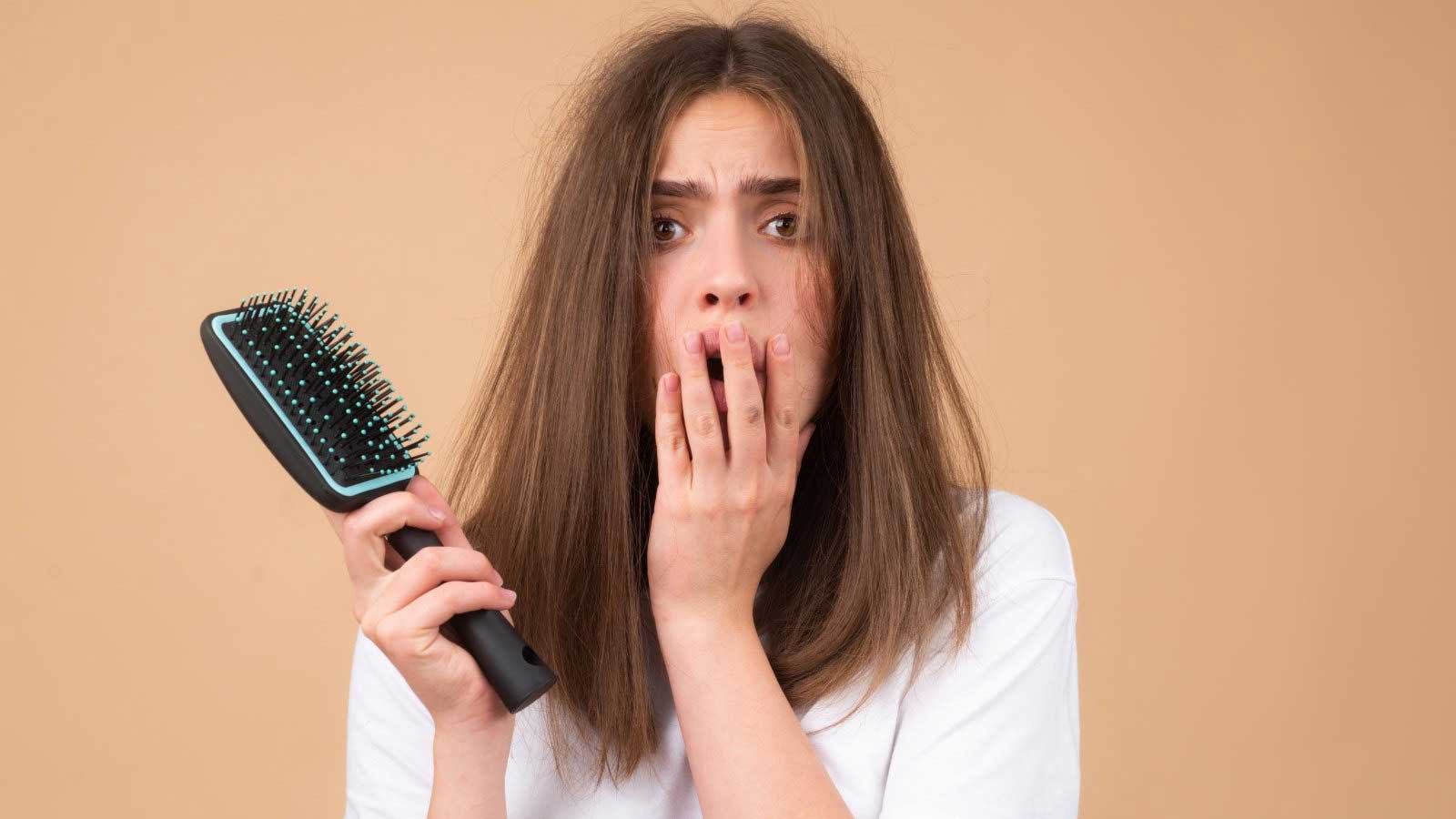Can Stress Cause Hair Loss?
Hair loss is a common concern that affects millions of people worldwide. While various factors can contribute to hair loss, one question that often arises is whether stress can be a significant trigger. Stress is an inevitable part of life, and its impact on the body can be profound. In this blog, we will delve into the relationship between stress and hair loss, exploring the scientific evidence and understanding how managing stress can promote hair health.

The Science behind Stress-Induced Hair Loss
To comprehend the link between stress and hair loss, it's essential to understand how hair growth works. Hair goes through a cycle that includes a growth phase (anagen), a transitional phase (catagen), and a resting phase (telogen). Around 85-90% of the hair on the scalp is usually in the anagen phase, while the remaining percentage is in the telogen phase, which lasts for about two to three months before shedding and being replaced by new hair.
Stress can impact the hair growth cycle by pushing more hair follicles into the telogen (resting) phase prematurely. This condition is known as telogen effluvium, and it is one of the most common forms of stress-induced hair loss. When more hair follicles enter the telogen phase at the same time, noticeable hair shedding and thinning can occur.
Understanding the Mechanism
Stress triggers telogen effluvium by altering hormonal balance, especially cortisol, prematurely pushing hair follicles into the telogen phase. Stress can also reduce scalp blood flow, weakening hair follicles and contributing to hair loss. The onset of stress-induced hair loss can have a delayed response, making it challenging to identify the exact cause.
The Impact of Chronic Stress
Chronic stress is detrimental to hair health. Prolonged activation of the body's stress response can have negative effects on overall health, including hair follicles
It disrupts hormone balance, affecting the hair growth cycle, and weakens the immune system, making the body more susceptible to conditions that impact hair follicles.
Unhealthy coping mechanisms during chronic stress, like poor diet, lack of sleep, or increased alcohol and tobacco use, can also negatively impact hair health.

Managing Stress to Promote Hair Health
While stress-induced hair loss can be distressing, the good news is that in many cases, it is reversible once the underlying stress is addressed. Managing stress effectively can not only promote hair health but also improve overall well-being.
Here are some strategies to help manage stress and potentially reduce the risk of stress-related hair loss:
1. Exercise regularly: Engaging in physical activity can help reduce stress hormones and release endorphins, which are natural mood elevators.
2. Practice relaxation techniques: Techniques such as meditation, deep breathing exercises, and yoga can help calm the mind and reduce stress.
3. Prioritize sleep: Getting enough restorative sleep is essential for managing stress and supporting overall health, including hair health.
4. Maintain a balanced diet: Ensure your diet includes a variety of nutrients, such as vitamins, minerals, and proteins, which are essential for healthy hair growth.
5. Seek support: Talking to friends, family, or a mental health professional can be helpful in managing stress and building coping strategies.
6. Engage in hobbies: Taking time to do things you enjoy can provide a sense of fulfillment and help distract from stressors.
7. Avoid excessive styling: Over-styling, using harsh products, or tight hairstyles can put unnecessary stress on hair, potentially exacerbating hair loss.
While stress can be a contributing factor to hair loss, it's essential to recognize that it's just one piece of the puzzle. Various other factors, such as genetics, age, and overall health, can also play a role in hair loss. If you are experiencing significant hair loss or are concerned about it, consulting with Allaymeds Compounding Pharmacy, can help you develop a customized medication for your treatment.
Managing stress, adopting a healthy lifestyle, and practicing self-care not only benefit your hair but also contribute to a more balanced and fulfilling life. Remember, taking care of your overall well-being is the foundation for healthy and vibrant hair.
